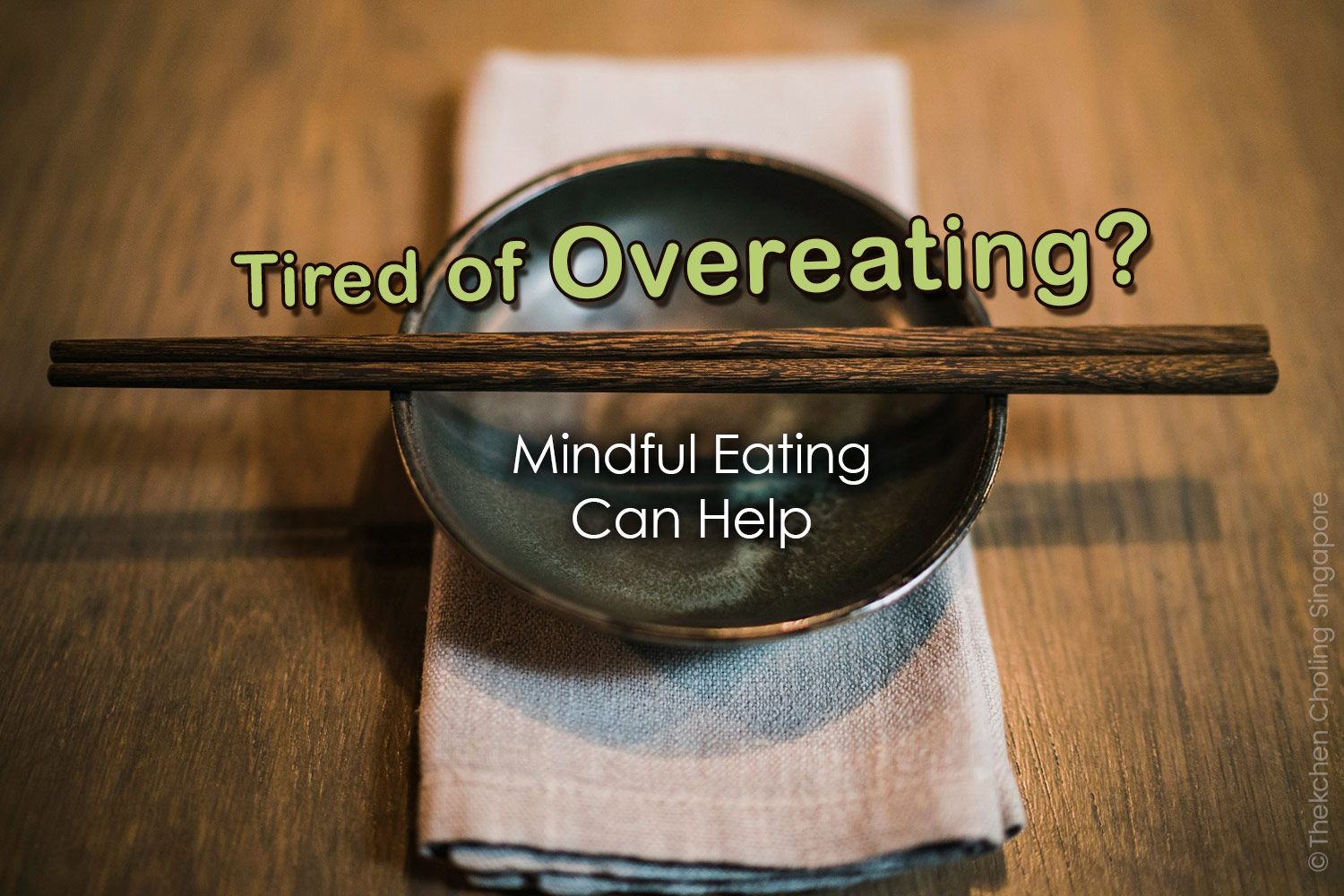Tired of Overeating? Mindful Eating Can Help

Does this sound familiar to you? You’re feeling hungry and you decide to eat something really fast and end up overeating which leads to feeling overly full.
Or, you’re at the office desk and answering emails while eating your lunch, often forgetting what you’re eating or how much you have eaten.
This is a common issue amongst many, and this blog article will explore what it means to eat mindfully with care. This can lead to many benefits such as a deeper appreciation of food and weight loss naturally, leading to a healthier gut and overall sense of well-being.
What is mindful eating?
Mindful eating is the practice of bringing full, non-judgmental awareness to the act of eating—engaging all your senses, noticing hunger and fullness cues, and simply being present with each bite. It grew from Buddhist mindfulness, especially the ancient concept of being “in the here and now.”
Shakyamuni Buddha once gave a teaching on mindful eating as found in the Doṇapākasutta. There was a King Pasenadi of Kosala who used to eat rice by the bucketful. The Buddha noted that King Pasenadi was often huffing and puffing after eating, and said to him,
“When a man is always mindful, knowing moderation in eating, his discomfort fades, and he ages slowly, taking care of his life.”
Thereafter, King Pasenadi had his student Sudassana repeat this verse to him every time before his meal. Gradually, the kind reduced his intake to one cup of rice and slimmed down. The king was very grateful towards Buddha for his wise words, and said, “In both ways the Buddha has sympathy for me: in the good of this life and the good of the next.
From this story, we learn that it is important to eat with mindfulness, as this helps us to lead a healthier lifestyle so that we may live better and with less greed and attachment towards food. This enables us to benefit ourselves and others along the path with a strong and healthy body.
In Buddhist tradition, eating is a form of meditation. Thích Nhất Hạnh shares practices in mindful eating, guiding practitioners to chew slowly, letting each bite be a path to mindfulness. He wrote about the experience of eating a tangerine:
“I am peeling the tangerine mindfully, and I enjoy every second, every moment. And this is life; this is true life. I will take one section. I look at it, always mindfully, and notice that it is something wonderful, real, before I put it in my mouth. And I notice the savour, the taste, the juice that is coming out, mindfully. So, I savour every second, every moment, of the time I take in order to enjoy the tangerine. And that is a spiritual experience also. ”
Just like how Thích Nhất Hạnh eats mindfully, you can follow these small steps to start with this practice:
Pause & breathe: Before eating, take 3 slow breaths to shift into presence.
Engage the senses: Notice colors, aromas, textures. Eat slowly—chew thoroughly
Eat quietly: Eliminate distractions—no phone or TV—to foster conscious attention.
Check in with body: Halfway, pause and ask: “Is my hunger satisfied?”
Gratitude ritual: Acknowledge sources—farmers, sunlight, Earth—that brought the food .
Reflect gently: After eating, observe how your body and mind feel—no judgment.
Did you know this about your gut?
According to medical research by Harvard, digestion relies on a series of hormonal signals exchanged between the gut and the nervous system, and it typically takes around 20 minutes for the brain to recognize that the body is full. When we eat too quickly, we might end up overeating before those fullness signals kick in. Additionally, eating while distracted—such as while driving or working—can interfere with digestion, much like the body's stress response does. Poor digestion can mean that we're not fully absorbing the nutrients in the food we eat. This is where mindful eating comes in to help with these issues.
What are the benefits of mindful eating?
Research and tradition highlight multiple interconnected benefits:
1. Improved digestion & nutrient absorption
Slower eating boosts saliva production and aids GI tract digestion, enhancing nutrient uptake
2. Enhanced awareness of hunger & fullness
Slowing down helps you stop eating when satisfied—avoiding overeating
3. Stress reduction and emotional well‑being
An attentive, nourishing meal reduces stress, supports mental health, and improves self-esteem
4. Healthier eating habits
Mindful eaters choose whole, nutritious foods and reduce impulsive or emotional eating
5. Support in weight management
Mindful practices have been shown to alleviate binge eating and emotional food anxieties, serving as therapy tools to help with weight
6. Deep enjoyment and sensory delight
You savor flavor and texture more deeply, turning each meal into a mini-meditation
Prayers to offer before eating
To make eating a meaningful experience, you can offer your food to Buddha before eating. This act creates merits as it is an act of generosity and non-attachment. This is a daily practice for monastics that we can follow and apply in our daily lives too.
In Tibetan:
TÖN PA LA ME SANG GYÄ RIN PO CHHE
KYOB PA LA ME DAM CHHÖ RIN PO CHHE
DREN PA LA ME GE DÜN RIN PO CHHE
KYAB NÄ KÖN CHHOG SUM LA CHHÖ PA BÜL
In English:
To the supreme teacher, the precious Buddha,
To the supreme refuge, the precious Dharma,
To the supreme guides, the precious Sangha,
To the Triple Gem, the objects of refuge, I make offering.

